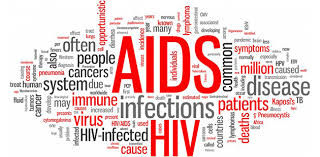HIV response crisis in Fiji
- webmaster13878
- Dec 1, 2022
- 4 min read

There is a crisis in HIV response in Fiji.
That’s the warning from Pacific Sexual and Gender Diversity Network Chief Executive Officer Isikeli Vulavou on World AIDS Day today.
Vulavou says ever since international donor funds (the GFATM and PRISP2 in 2008 and 2014, respectively) ended in Fiji, the Fijian Government’s resource allocation for eradicating HIV and AIDS has gradually dwindled from FJ$500,000 per year and depleted over the years to only about FJ$200,000 now.
The CEO says this lackadaisical attitude, poor response, and weak commitment from the government, international donors, and others have clearly contributed to Fiji becoming one of the top three countries for rising HIV infections (>100% between 2010 and 2020) in the Asia and Pacific region and one of 38 globally as per the latest 2021 AIDS Datahub updates.
The national total of people living with HIV in Fiji in 2021 had risen to 804 people, and the release of the latest statistic s on this day from the Ministry of Health will surely show a doubling of the annual new HIV infection rates.
"On this path, Fiji will definitely fail to meet any of the targets for prevention, diagnosis, and treatment set out in the 2016 Political Declaration on HIV/AIDS, with progress on HIV prevention lagging particularly far behind.
This is our last chance to create sustained momentum for the policies, programs, and funding that are needed to end HIV as a global health threat by 2030."
Vulavou says more than ever, Fiji urgently needs evidence-based responses and renewed political will, especially in face of the additional burdens imposed by the COVID-19 pandemic.
"The government of Fiji needs to act now. We need the government to scale up domestic funding and reach out to the Global Fund for HIV and other donors for more international funding."
The CEO says Fiji and other governments in the Pacific need to direct the great majority of prevention funding for prevention, testing, treatment, and advocacy to community-led responses.
"They also need to protect and promote space for civil society to be able to work in an enabling human-rights based environment."
World AIDS Day is marked annually for people worldwide to unite in the fight against HIV, to show support for people living with HIV, and to commemorate those who have died from an AIDS-related illness.
The CEO says human rights are fundamental to an effective HIV response and to the health of all people in Fiji and the Pacific.
Vulavou says despite the protection and promotion of people’s human rights being fundamental in the fight against HIV, there continues to be serious attacks on these rights in many Pacific Island States, creating inequalities that perpetuate the AIDS pandemic.
“The day is very important because it reminds the public and government that HIV has not gone away – there is still a vital need to raise money, increase awareness, fight prejudice and improve education,” the CEO said.
“We know that by improving respect for human rights, we can go a long way to curbing the spread and alleviating the impact of the epidemic.
“We need to empower our women, girls, and LGBTQI people to make decisions about their own sexuality, and ensure those living with HIV/AIDS have the same rights to information, association, and freedom of speech, treatment and quality healthcare as those without the infection.”
Vulavou says any opportunity we get must be used to educate and advocate about the importance of decreasing the spread of HIV/AIDS, and protecting those living with HIV/AIDS from discrimination and mistreatment based on their status.
“Discrimination based on sexual orientation and gender identity and homophobia fuel the HIV epidemic in marginalised people, in particular transgender women, gay and bisexual men and sex workers in the region and deprives them of their right to the highest attainable standard of physical and mental health.
“We must equalize for marginalised people. We will not end AIDS unless we can end it for everyone.”
Vulavou says while it is often a challenge to work together, everyone, including our teachers, human rights activists, health care workers, politicians and religious leaders must work together to confront the taboos associated with HIV/AIDS.
“Together we can challenge the attitudes and beliefs that lead to discrimination and inequality. We must encourage open and inclusive discussion on the difficult issues surrounding the AIDS epidemic, including discrimination based on gender, sexual orientation, race, poverty, and HIV and AIDS status.
“Our governments cannot afford to be complacent about the killer disease and divert all the attention and focus to COVID-19 and climate change.
“If our governments and leaders don’t take bold actions to stop the spread of HIV, we will have to dig deep and work harder to stop the reversal of the gains that have been made over the years.”
Vulavou says as we mark the day, we must remember the many Pacific islanders whom we have lost to the disease, acknowledge the significant advances we have made, and recognize the many setbacks that we have to deal with to achieve a world truly free of AIDS.
Ends...
For more information, contact PSGDN Communications Lead Nasik Swami at nasik.swami@psgdn.org




Comments